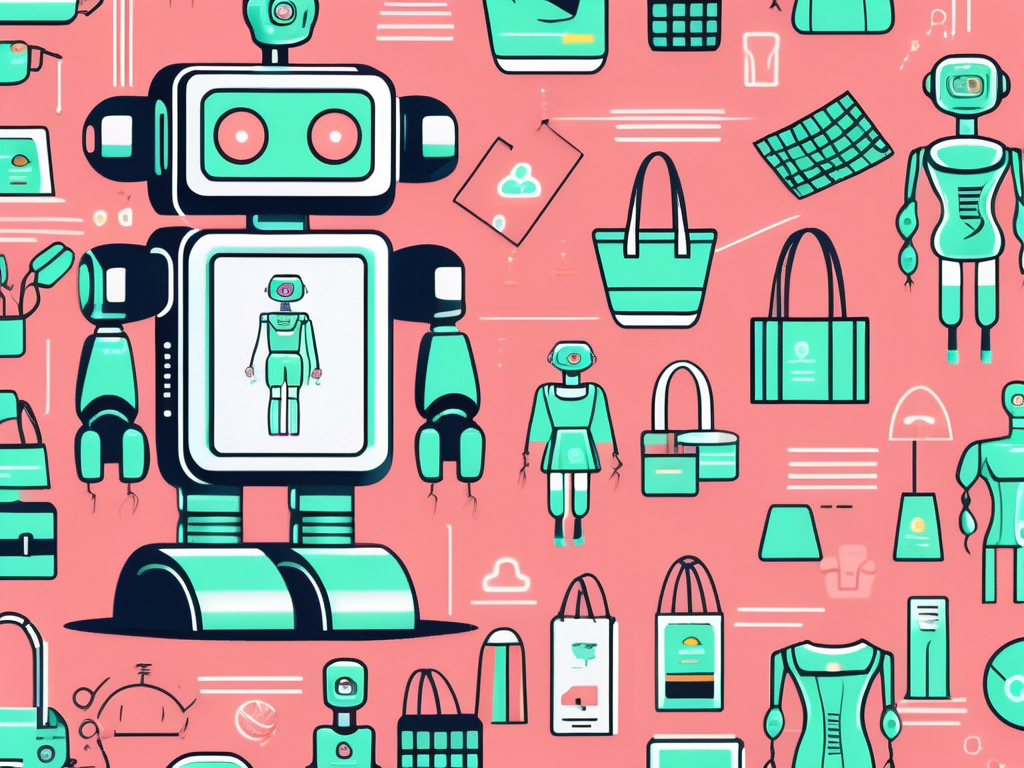.svg)
The Role of AI Agents in Personalised Shopping Experiences
.svg)

In the digital age, the shopping experience has undergone a significant transformation, largely driven by advancements in technology. Among these technological innovations, Artificial Intelligence (AI) agents have emerged as pivotal players in creating personalised shopping experiences. These AI agents are not just enhancing the way consumers shop but are also revolutionising how retailers interact with their customers. From virtual assistants to sophisticated recommendation engines, AI is reshaping the retail landscape by offering tailored experiences that cater to individual preferences and needs.
Understanding AI Agents in Retail
AI agents in retail refer to software programmes that utilise artificial intelligence to perform tasks that typically require human intelligence. These tasks include learning from data, recognising patterns, and making decisions. In the context of shopping, AI agents are employed to analyse consumer behaviour, predict trends, and offer personalised recommendations. By leveraging vast amounts of data, these agents can provide insights that enable retailers to understand their customers better and deliver more relevant shopping experiences.
The integration of AI agents into retail systems allows for a more seamless and efficient shopping process. These agents can automate various aspects of the shopping journey, from product discovery to checkout, thereby reducing friction and enhancing customer satisfaction. As a result, retailers can not only improve their operational efficiency but also foster stronger relationships with their customers by offering more personalised and engaging experiences.
Moreover, AI agents are capable of learning and adapting over time. As they interact with more data, they become increasingly adept at predicting consumer preferences and behaviours. This continuous learning process ensures that the shopping experience remains dynamic and relevant, keeping pace with changing consumer expectations and market trends.
Types of AI Agents in Shopping
There are several types of AI agents that play a crucial role in personalising shopping experiences. One of the most common types is the virtual shopping assistant. These AI-powered assistants are designed to interact with customers in real-time, providing them with product recommendations, answering queries, and assisting with purchases. By simulating human-like interactions, virtual assistants enhance the shopping experience by making it more interactive and engaging.
Another type of AI agent is the recommendation engine. These agents analyse customer data, such as browsing history and purchase patterns, to suggest products that align with the customer's interests and preferences. Recommendation engines are instrumental in driving sales by presenting customers with products they are more likely to purchase, thereby increasing conversion rates and boosting customer satisfaction.
Chatbots are also a popular form of AI agents in retail. These conversational agents are designed to handle customer service inquiries, providing instant responses to common questions and issues. By automating customer support, chatbots not only improve response times but also free up human resources to focus on more complex tasks, ultimately enhancing the overall customer experience.
The Benefits of Personalised Shopping Experiences
Personalised shopping experiences offer numerous benefits for both consumers and retailers. For consumers, personalisation means a more tailored and relevant shopping journey. By receiving product recommendations and offers that match their preferences, consumers can enjoy a more convenient and satisfying shopping experience. This level of personalisation also helps consumers discover new products that they might not have considered otherwise, broadening their shopping horizons.
For retailers, personalised shopping experiences translate into increased customer loyalty and higher sales. When customers feel understood and valued, they are more likely to return to the retailer for future purchases. Personalisation also enables retailers to differentiate themselves in a competitive market, offering unique experiences that set them apart from their competitors. By leveraging AI agents to deliver personalised experiences, retailers can build stronger relationships with their customers, leading to long-term business success.
Furthermore, personalisation can lead to more efficient marketing strategies. By understanding customer preferences and behaviours, retailers can tailor their marketing efforts to target specific segments of their audience. This targeted approach not only maximises the effectiveness of marketing campaigns but also reduces costs by minimising wasted resources on broad, untargeted advertising.
Challenges in Implementing AI Agents
While the benefits of AI agents in personalised shopping are clear, implementing these technologies is not without its challenges. One of the primary challenges is data privacy and security. As AI agents rely on vast amounts of consumer data to function effectively, retailers must ensure that they are collecting, storing, and using this data responsibly. Compliance with data protection regulations, such as the General Data Protection Regulation (GDPR), is essential to maintaining consumer trust and avoiding legal repercussions.
Another challenge is the integration of AI agents into existing retail systems. Retailers must ensure that their technology infrastructure can support the deployment of AI agents without disrupting current operations. This often requires significant investment in technology upgrades and staff training to ensure that the transition is smooth and successful.
Additionally, there is the challenge of ensuring that AI agents deliver accurate and relevant recommendations. While AI agents are capable of learning and adapting, they are not infallible. Retailers must continuously monitor and refine their AI systems to ensure that they are providing value to customers and not leading them astray with irrelevant or incorrect suggestions.
The Future of AI in Retail
The future of AI in retail looks promising, with continued advancements in technology poised to further enhance personalised shopping experiences. As AI algorithms become more sophisticated, they will be able to process and analyse even larger datasets, leading to more accurate and nuanced insights into consumer behaviour. This will enable retailers to offer even more personalised and engaging shopping experiences, further strengthening customer loyalty and driving sales.
Emerging technologies, such as augmented reality (AR) and virtual reality (VR), are also set to play a significant role in the future of AI-driven retail. By integrating AI with AR and VR, retailers can create immersive shopping experiences that allow customers to interact with products in new and exciting ways. This fusion of technologies will not only enhance the shopping experience but also provide retailers with valuable data on how customers engage with their products.
Furthermore, as AI continues to evolve, we can expect to see greater collaboration between AI agents and human employees. Rather than replacing human workers, AI agents will augment their capabilities, allowing them to focus on more complex and creative tasks. This synergy between humans and AI will lead to more efficient and innovative retail operations, ultimately benefiting both retailers and consumers.
Conclusion
AI agents are playing an increasingly important role in shaping personalised shopping experiences. By leveraging the power of artificial intelligence, retailers can offer tailored and relevant experiences that meet the unique needs and preferences of their customers. While there are challenges to overcome, the potential benefits of AI-driven personalisation are immense, promising a future where shopping is more convenient, engaging, and satisfying for consumers. As technology continues to advance, the role of AI agents in retail will only grow, paving the way for a new era of personalised shopping experiences.
Let's
Let’s discuss how we can bring reinvigorated value and purpose to your brand.







.svg)